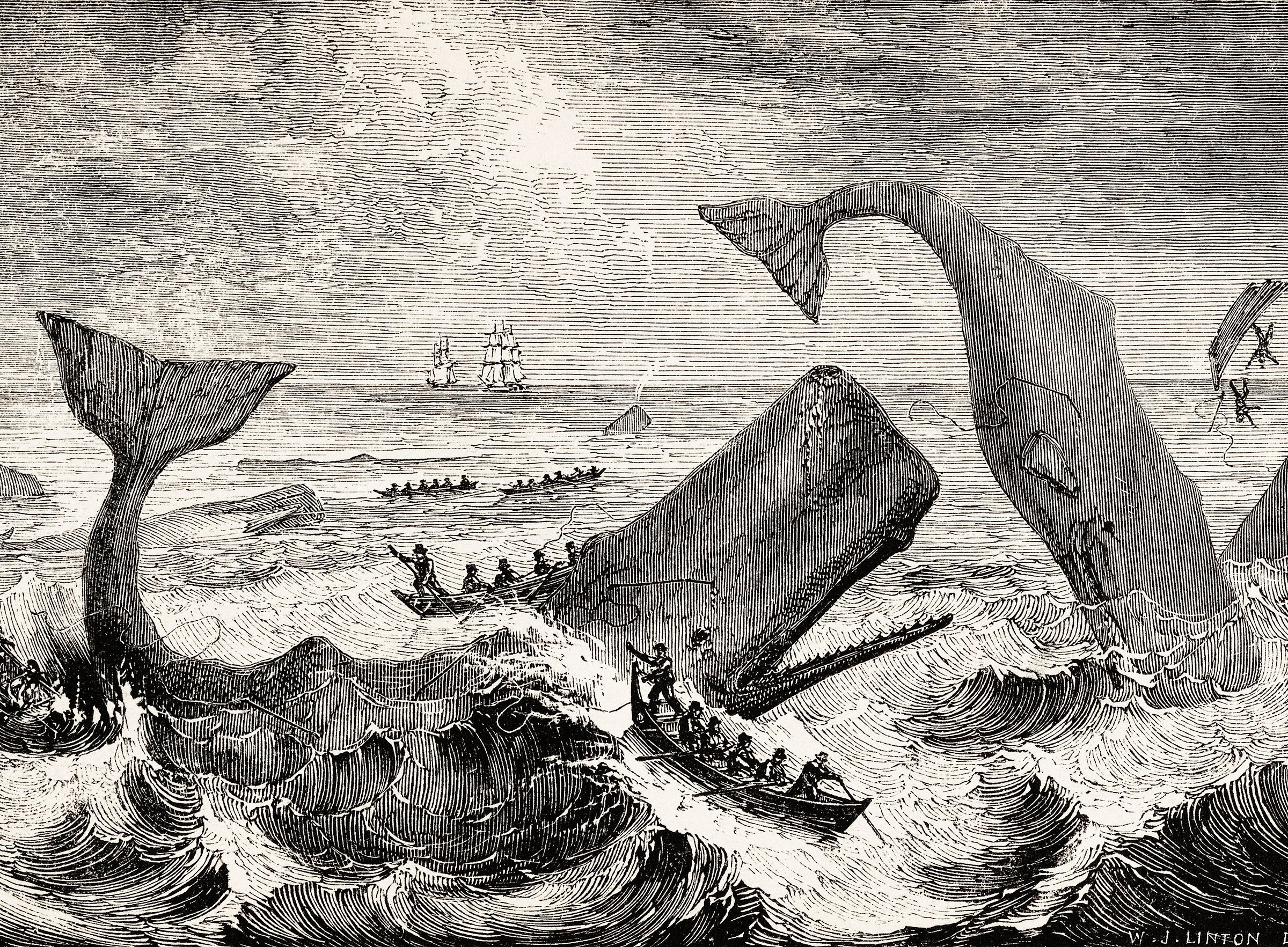In the name of progress
we pour your honeyed ichor
down the jagged throats of our
unquenchable machines,
launching broken vessels
to coax you from the depths
of your untroubled slumber.
Surrounded by our wooden welts
you congregate in immensity
striking the surface with
frenzied flukes to tear
the waves from their moorings,
a futile display of decay
that paints rounded targets
for warm-blooded killers
that rise from the spray.
Bloodied.
Bruised.
Broken.
You flee from your hubris
to the undying night of the
ocean’s floor.
Seeking comfort, you sing
faded Fado,
mourning your loss
for others
to learn.

This poem is inspired by recent research, which has found that sperm whales shared behaviours to outmanoeuvre 19th-century human hunters.
The sperm whale is the largest toothed predator in the world, growing to a length of almost 19m and with the largest known brain of any modern or extinct animal. The sperm whale was hunted for centuries for oil, both from reservoirs in its massive head and rendered from its blubber. Whale oil was essential for illuminating homes and businesses in the 19th century, lubricating the machines of the Industrial Revolution, and resulting in the sperm whale being hunted heavily via the use of sail-powered whale ships, rowboats, and harpoons. However, it has been suggested that the success rate of harpooning whales dropped substantially during this period, and that this was likely due to socially learned changes in whale behaviour.
In this new study, researchers have proved this hypothesis, by analysing newly digitized logbooks kept by whalers during their hunting voyages during this time period, revealing that the rate at which whalers succeeded in harpooning whales fell by about 58% over the first few years of exploitation in a region. The study also shows that this drop-off in successful harpooning could not be attributed to other factors such as better competence amongst early whalers or the initial killing of particularly vulnerable individuals. Rather, this trend was caused by ‘social learning’, via which the whales learned ‘defensive measures’ (such as swimming fast upwind and away from the whalers’ wind-powered vessels) from other whales who had survived previous experiences with the whalers. This study therefore reveals that sperm whales underwent a process of cultural evolution, suggesting that sperm whales and potentially other species can rapidly change behaviour in response to human-made threats by making use of social learning.
Discover more from The Poetry of Science
Subscribe to get the latest posts sent to your email.
So evocative, the imagery is fabulous and disturbing
Thank you Fiona. I found this research to be inspiring, and so innovative.
beautiful Sam, …fading Fado….
Have a nice weekend,
Rolf
Thank you Rolf,
I will never forget the first time I heard Fado in Cascais. A beautiful, soulful experience that I hope to have repeated! 😀